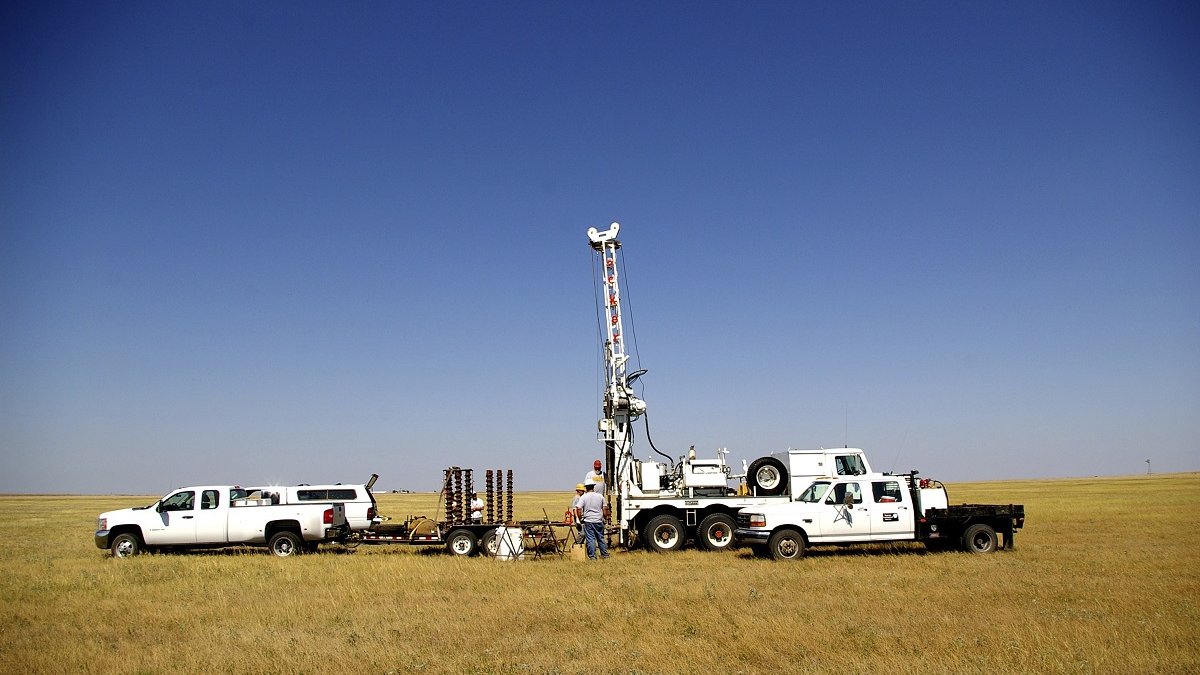How to Become an Environmental Geologist

Picture this: you’re standing in the middle of a field next to an industrial manufacturing plant, extracting soil and groundwater samples for testing. The field is the site of hazardous waste dumping that’s contaminated the environment, and has been deemed a Superfund cleanup site by the EPA. As part of a team of environmental scientists, it’s your job to find out the nature of the groundwater contamination, the potential threat it poses to the environment and the potential treatment options for the contamination.
Sound exciting? If so, environmental geology may be the career for you.
What is an environmental geologist?
Environmental geologists play an important role in the development projects that make up our cities, power grids and other infrastructure. In addition to determining things like structural soundness or safety, determining the environmental effects of buildings, mines, disposal sites or power plants on soil and groundwater is a vital part of the planning process. It’s an environmental geologist’s role to test those elements, and help determine safe locations for landfills, drilling areas, pipelines and other projects. They also help clean up contamination from incidents such as leaking underground storage tanks or chemical spills.
Where do environmental geologists work?
Environmental geologists work in a wide variety of industries, including energy, environmental consulting and government-based entities like a geological survey or environmental agency. An environmental geologist might work with an oil or gas company to build fuel pipelines, with an energy company building a plant or disposal site, or with a city to determine a safe place to create a new landfill.
What does an environmental geologist do?
Environmental geologists focus their study on understanding how human development impacts the land, especially with regard to predicting or anticipating geological issues that a potential project could cause. This often covers areas such as earthquakes, land erosion, groundwater management or mineral resource management, as well as the long-term effects of urban and industrial expansion.
Environmental geologists often present their findings to the public or to private clients, with the goal of identifying the risks of development on a specific area, and minimizing the potential negative impacts of a development project on soil or groundwater.
Environmental geology is a branch of science that’s in high demand. According to the Bureau of Labor Statistics, demand for environmental geologists is expected to grow 15-21 percent, and add more than 17,000 jobs to the economy by 2022.
What skills do I need to be an environmental geologist?
In addition to technical knowledge such as site assessment, environmental regulations and physical hydrology, successful environmental geologists also require management skills to organize and lead projects. Success in this field also requires strong communication skills, since environmental geologists don’t just collect data, but also share their findings with clients, government entities and the public at large.
Programs like KU’s Professional Science Master’s degree can help you hone your technical and professional skills at the same time. KU’s program provides environmental science, geology, project management and communications courses for a well-rounded skillset, in addition to hands-on short courses in laboratory skills.
Resources
Want to know more about environmental geology and environmental science jobs? Check out these links:
Geoscientists—Bureau of Labor Statistics
Learn more about KU's Professional Science Master's in Geology
Top photo caption: Bill Johnson/University of Kansas
Explore other Professional Science Masters programs at the KU Edwards Campus. The campus also offers a PSM and graduate certificates in environmental assessment. Check out our environmental assessment students at work.
The Professional Science Master’s degree program is supported by the Johnson County Education Research Triangle.





